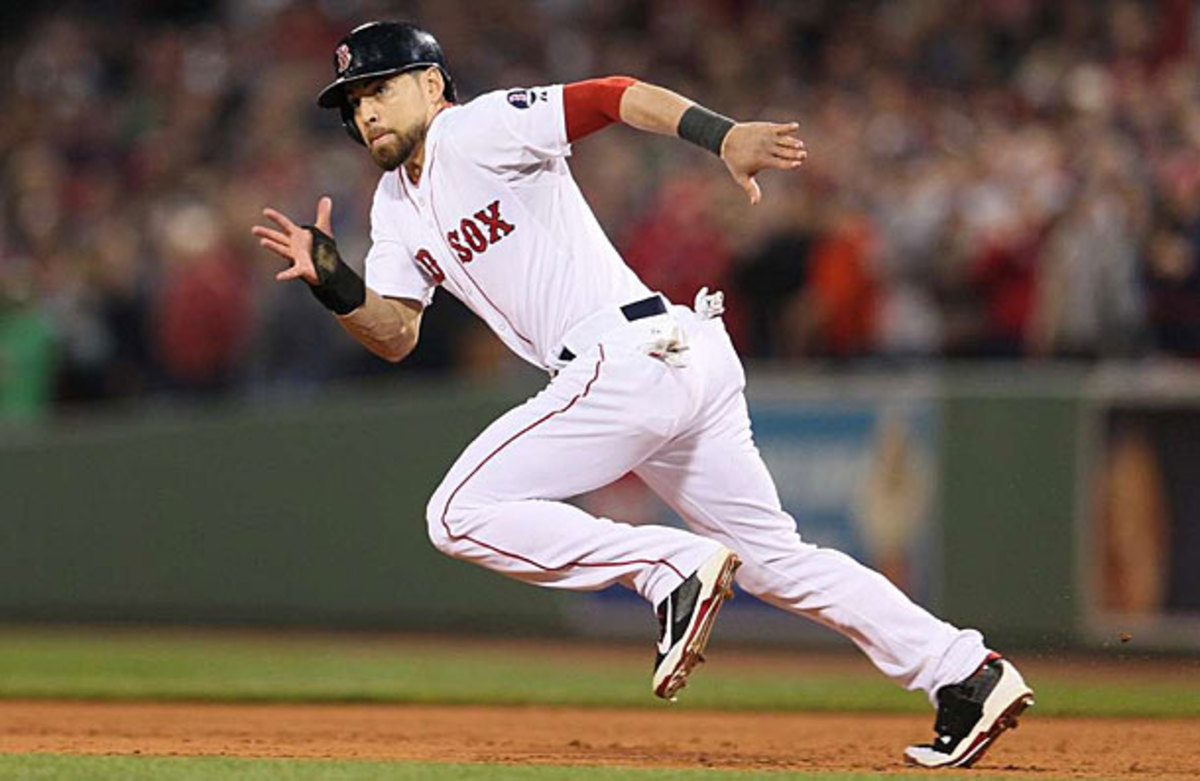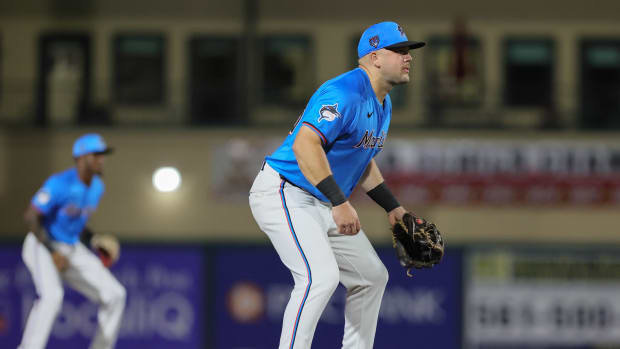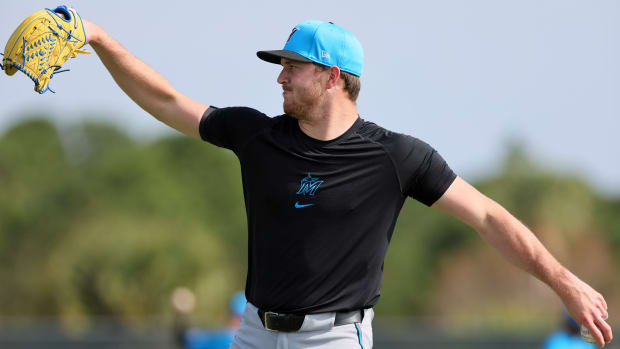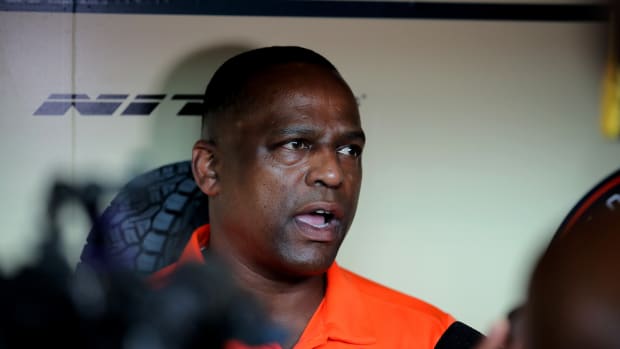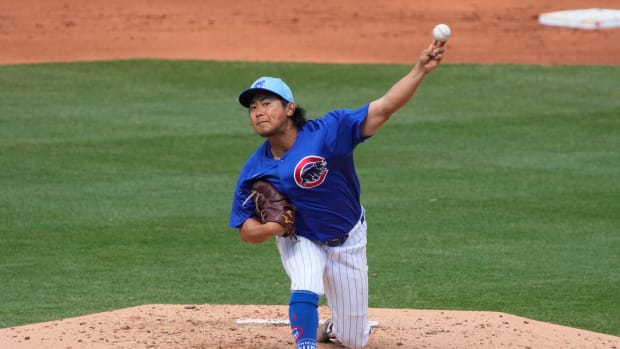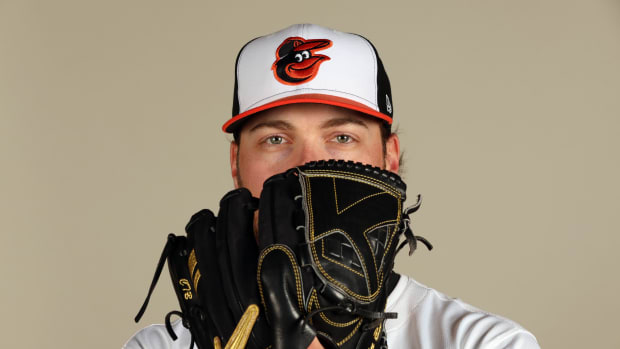What is he really worth?: Jacoby Ellsbury
Jacoby Ellsbury led the majors with 52 stolen bases in 2013, the second time he's done so. (Damian Strohmeyer/SI)
Over the next few days, SI.com will provide an analysis of some of the top free agents to explore just how much they are really worth on the open market. First up: Jacoby Ellsbury of the world champion Boston Red Sox.
What's a top free agent worth? That's the multimillion dollar question that's asked countless times each winter as teams bid astronomical amounts to secure the services of the market's biggest names. Fans and media tend to blanch at the resulting contract figures, which -- unless you're a tycoon of industry -- are far removed from their own experience. "Imagine being paid $X million a year to play a kids' game" is a familiar refrain, and in the cases of contracts like those of Tim Lincecum and Carlos Ruiz, our own analysis provides evidence that these deals often represent a departure from rationality.
SI.com's 2013-14 Free-Agent Tracker | Top 50 free agents available
For all of that, it's possible to use a model for player valuations that puts those dollar figures into perspective. Recently, I did so in the case of Joe Mauer, not in light of free agency -- he's got five years left on his eight-year, $184 million deal -- but to discover how he might be expected to age given his impending move from catcher to first base. Estimates of a player's value using Wins Above Replacement, the market price of a win, the rate of inflation and general aging patterns help us not only spit out a back-of-the-envelope value for what a player's next X years will be worth, but to bracket that value by adjusting those underlying assumptions.
For example, let's consider the case of Jacoby Ellsbury, who is coming off a strong age-29 season for the Red Sox in which he was worth 5.8 WAR via Baseball-Reference.com. Particularly given his injury history, it would be foolish to assume he's going to maintain that value going forward and continue cranking out 5-plus wins a year as he ages.
The simplest projection system would start with a weighted average of recent years, with the most recent season valued the highest. Tom Tango's Marcel system, which deliberately uses as little "intelligence" as possible to set a baseline against more complicated systems, uses a 5/4/3 system for the past three seasons, with the most recent season valued the highest; some versions of it use 5/4/3/2 for four years. In other words, the model takes five times the WAR of a player's most recent season, then adds four times his WAR from two seasons ago and three times his WAR from three seasons ago, then divides it by 12, which is the sum of 5+4+3.
Given that Ellsbury has been more or less replacement level in two of those four years — −0.1 WAR for 2010, followed by seasons of 8.1, 1.0 and 5.8 — I'm going to use the four-year formula to capture some of that volatility. Via that, a reasonable projection for Ellsbury's 2014 value would thus be 4.1 WAR. That sounds low, but a straight four-year average would be even lower, at 3.7.
Next comes the application of an aging pattern. Keeping this far simpler than Tango's Marcel model and taking advantage of the fact that the top free agent position players are all similarly aged, I'm simply going to approximate the Jeff Zimmerman finding I cited in the Mauer piece and trim 0.4 wins per year off that baseline figure as a player goes from ages 30 to 35. Don't worry, we can tweak this value as part of the bracketing.
From there, we consider the market cost of a win and the pattern of inflation. Again drawing on the Mauer piece, I'm using Russell Carleton's figure of $5.276 million per win for hitters of free agent vintage (in their seventh year of service time and beyond), and the commonly cited figure of five percent annual inflation. That means that the 2014 value of a win would increase to $5.54 million, and so on.
Given those assumptions, here's what Ellsbury's next seven years might look like. I've chosen the seven-year figure because recent years have seen top-of-the-market outfielders such as Matt Holliday, Jayson Werth and Carl Crawford sign pacts of such length at more or less similar ages (dollar figures below are in millions):
Year | Age | WAR | Market $/W | Prod $ |
2013 | 29 | 5.8 | $5.28 | $30.6 |
2014 | 30 | 4.1 | $5.54 | $22.6 |
2015 | 31 | 3.7 | $5.82 | $21.4 |
2016 | 32 | 3.3 | $6.11 | $20.0 |
2017 | 33 | 2.9 | $6.41 | $18.5 |
2018 | 34 | 2.5 | $6.73 | $16.7 |
2019 | 35 | 2.1 | $7.07 | $14.7 |
2020 | 36 | 1.7 | $7.42 | $12.5 |
Ellsbury's year-to-year decline in WAR looks steep, but as the cost per win rises, the value of his production is actually reasonably stable, dropping by "only" $1.5-2 million per year over this range. Via this estimate, Ellsbury is expected to produce 20.2 WAR over the next seven seasons, which would have a market value of $126.3 million, a figure almost on the nose for Werth's existing seven-year, $126 million deal with the Nationals. Did I mention that Werth and Ellsbury are both Scott Boras clients?
Suppose we cut out Ellsbury's troublesome fourth year and stick to a 5/4/3 weighting pattern, but a steeper aging curve whereby he loses 0.5 WAR per year instead of 0.4. That yields a 2014 value of 4.8 WAR, a six-year total of 22.9 WAR and a market value of $143.3 million. If we boost the cost per win to $6 million with the same rate of inflation, that figure skyrockets to $163 million. If we leave the cost per win as is but assume a gentle three percent inflation, the market value figure is still $133.9 million. If we go back to the four-year model and apply those same assumptions (steep decline, three percent inflation), we still get $104.9 million over the next seven years.
All of which hardly seems outrageous given that the general expectation is that Ellsbury will receive a deal north of $100 million. Boras is said to be targeting Crawford's seven-year, $142 million deal -- signed with Boston heading into his age-29 season -- as a benchmark. MLB Trade Rumors' Tim Dierkes estimated that Ellsbury would end up with a seven-year, $150 million deal. As the numbers above show, Ellsbury might be overpaid by tens of millions of dollars over the life of the contract, but the same can be said for any similar free agent. As I pointed out in the Mauer article, Albert Pujols was overpaid by $8.1 million in this past season and Alex Rodriguez by $26.4 million — and those are 10-year deals which aren't anywhere close to done.
Keep in mind that any dollar value we throw on a win -- $5.3 million or $6 million or whatever -- is an average that suggests the additional value for each win is the same for the Astros as for the Yankees, when in fact that's untrue. For a contending team, each additional win exponentially increases its chances of reaching the playoffs, which would thus allow it to tap into an additional revenue stream. Therefore a $150 million deal that produces $125 million of "actual" value would not only be within the expected range of variance but would be more justifiable for contender such as the Rangers than a cellar-dwellar such as the Mariners.






























